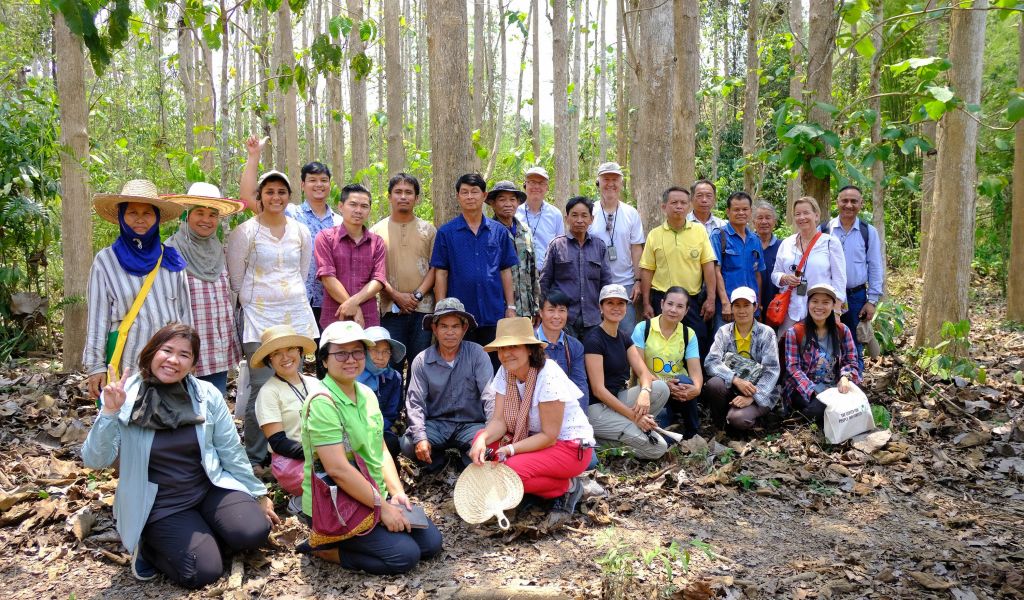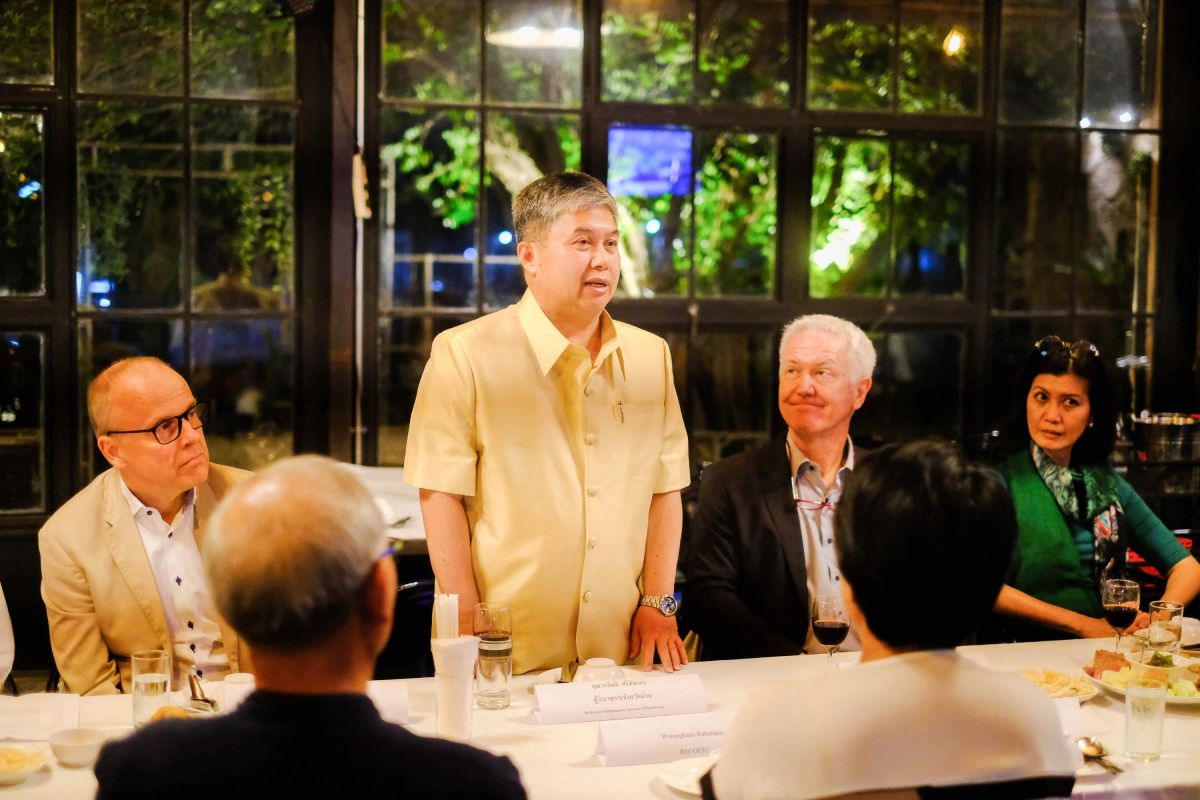Swedish and Swiss delegations learn how the Center’s landscape approach is addressing complex environmental and social dynamics in Thailand’s Nan Province

Nan lies in the northern part of Thailand, and is home to natural forests, cultivated lands, and a tapestry of ethnic groups and cultures. Over the past decade, Nan has been facing severe deforestation, flooding and forest degradation. The Center for People and Forests has worked with local communities for sustainable management of forests since 2012. We are currently working to develop partnerships between local communities, the private sector and government to restore forests, and build the capacity of civil society to advocate for improved forest governance.
The ambassadors of Sweden and Switzerland and the director of cooperation at the Swiss Agency for Development Cooperation learned about the Center’s new landscape-based strategy to ensure that local communities have the rights to manage their forests. Our approach brings together key stakeholders for healthy and resilient forests in Nan.
“Nan is a challenging landscape,” said Ivo Sieber, ambassador of Switzerland. “It was good to see that the Center is taking an approach that brings together social, economic and sustainable development.”

The delegation met with the Governor of Nan Province, Honorable Worakit Srithipphakorn, local government officials and civil society groups who shared their vision for the landscape.
“There are a lot of positive developments in Nan,” said Governor Worakit Srithipphakorn. “We want to increase forest cover in Nan, but we also want to ensure that local people have secure land tenure to improve their livelihoods.”
The delegation also visited an agricultural learning centre led by Venerable Abbot Phra Kru Suchin Nanthakit who is based at the Wat Pong Kham Temple. The venerable abbot works with farmers and smallholders to raise awareness of environmental issues, encourage organic farming and market their products to consumers in Thailand.

“The venerable abbot’s approach and training for the community is small-scale, effective, and a model that could be replicated,” said Carin Salerno, director of cooperation at the Swiss Agency for Development and Cooperation.
In the Santisuk District of Nan, farmers and the village chief shared their efforts to manage and conserve their community forest, and the challenges they face because of insecure land tenure and livelihoods.
“This was a fantastic learning exercise to really understand the challenges in terms of human rights and economic development for Nan,” said Staffan Herrström, ambassador of Sweden. “It was inspiring to hear from women leaders and see gender equity in action.”
The Center facilitated a stakeholder meeting, where the Royal Forest Department, Nan’s provincial Ministry of Natural Resources and Environment and other organizations presented their roles in conserving and restoring forests.
“This visit showcased the challenging social and political dynamics of Nan,” said Warangkana Rattanarat, country director the Center’s Thailand program. “We are in Nan province for the long-haul, and our efforts now are to determine how best to engage with a wide variety of actors across the landscape.”


